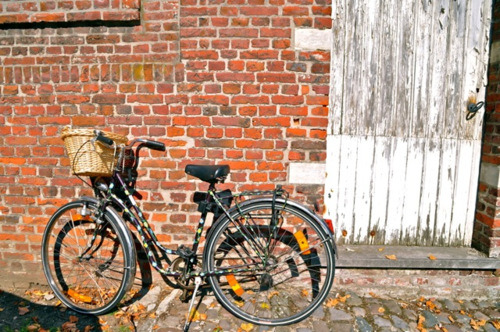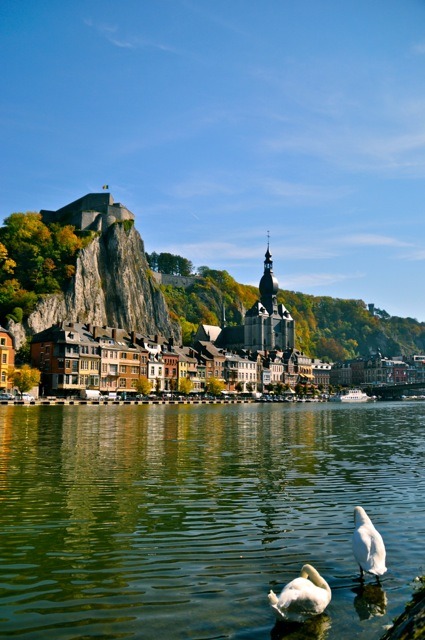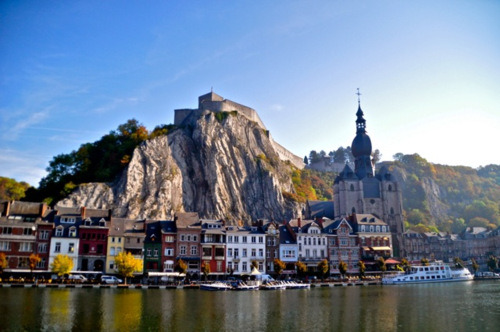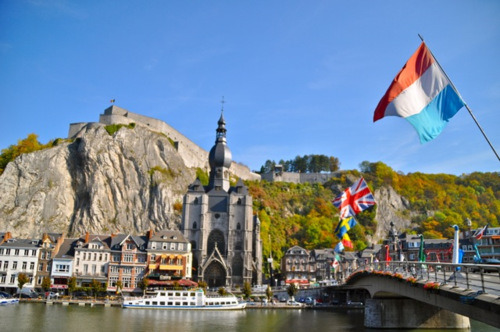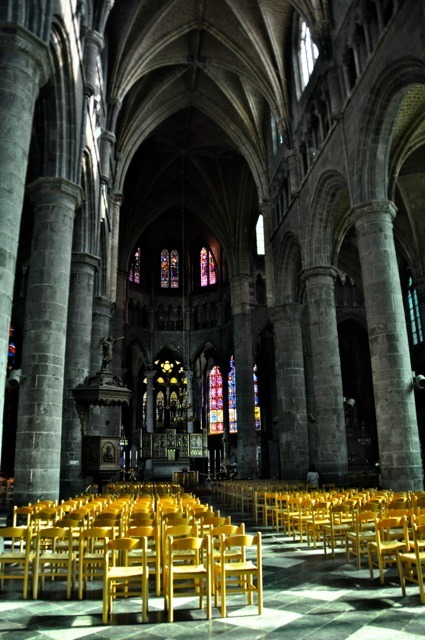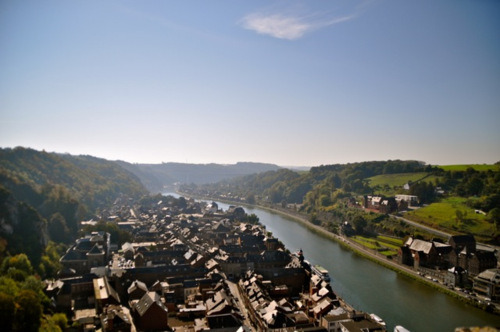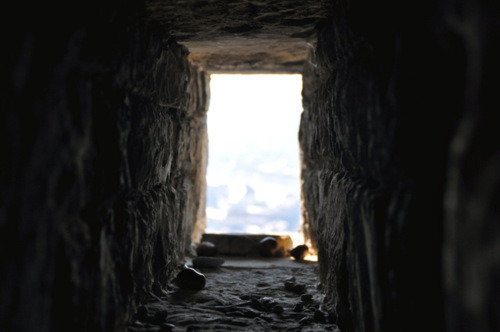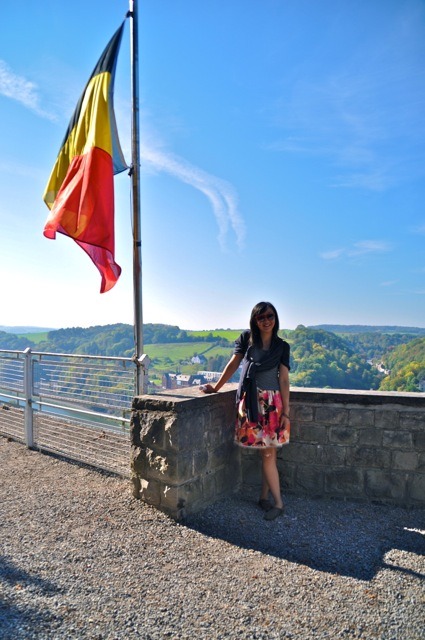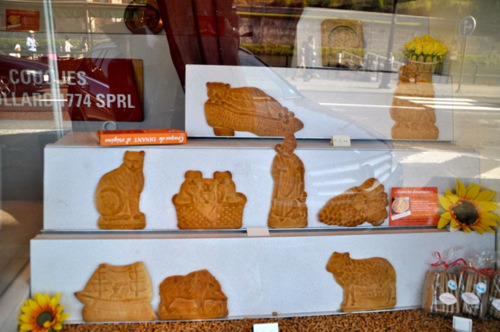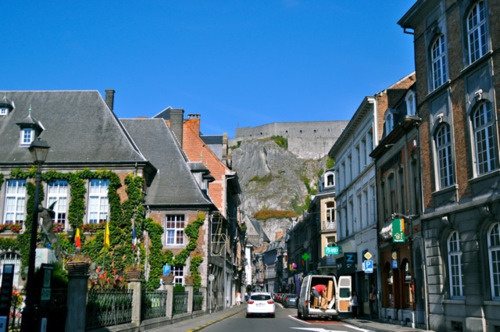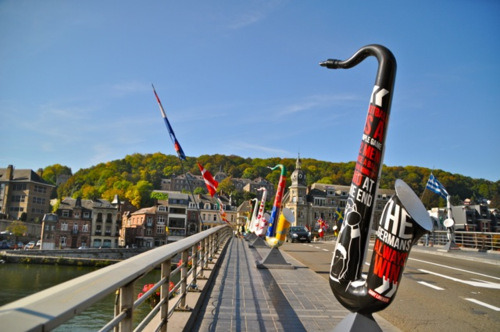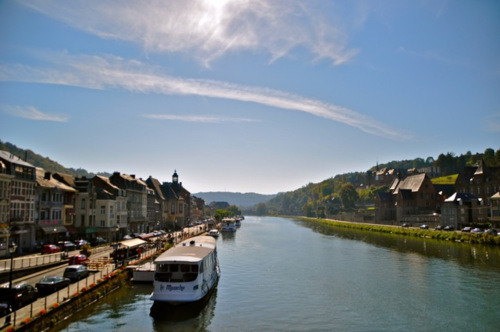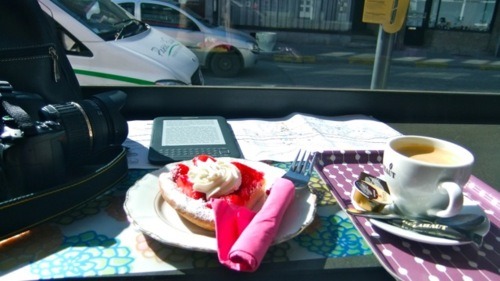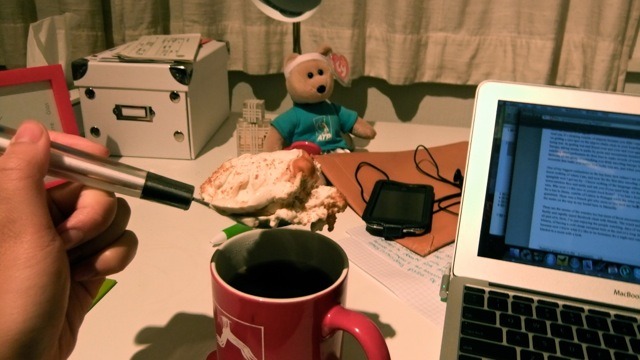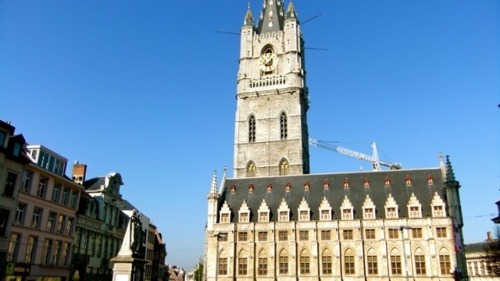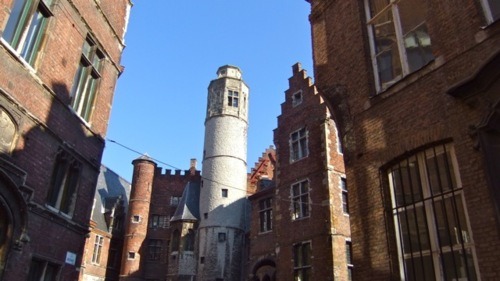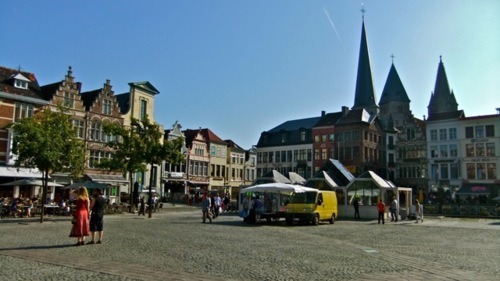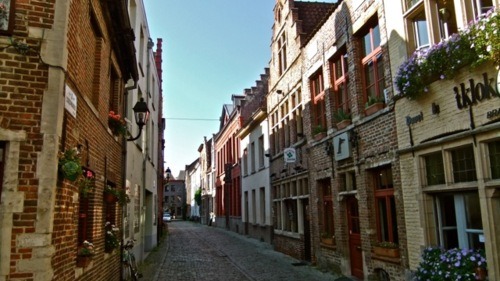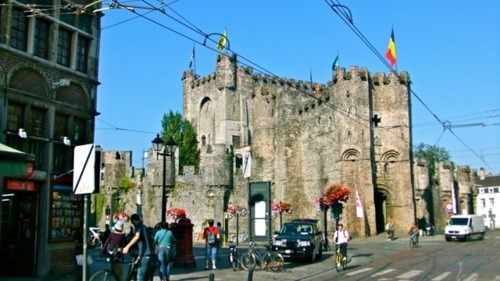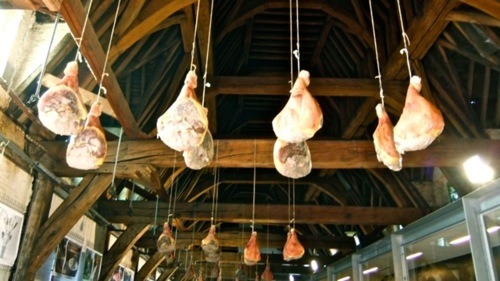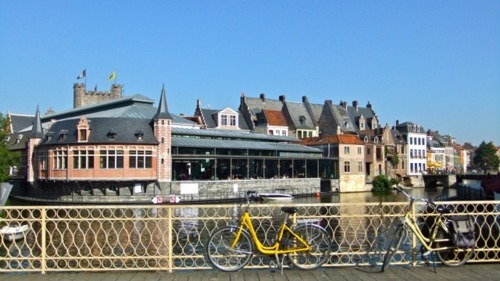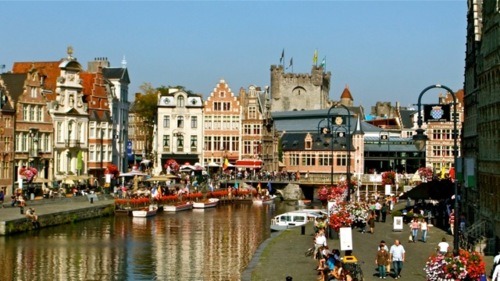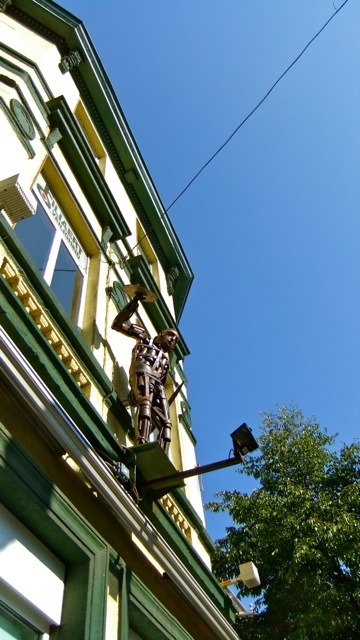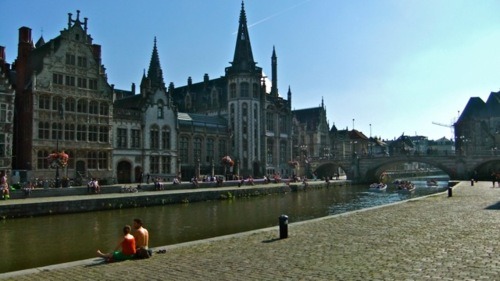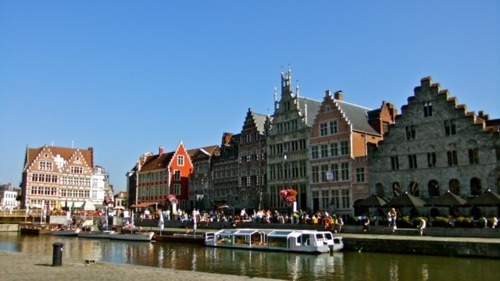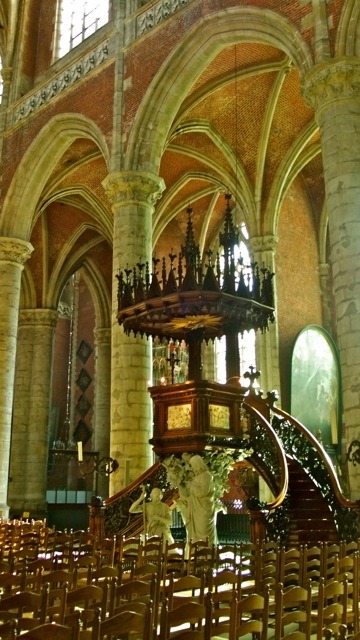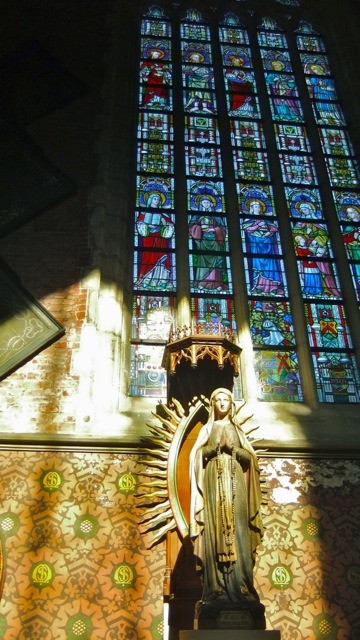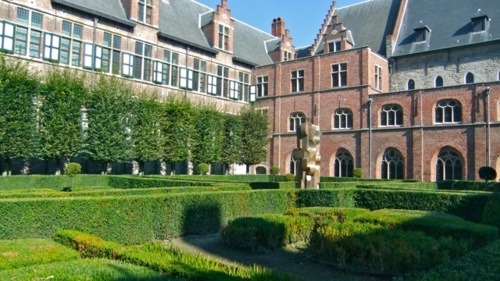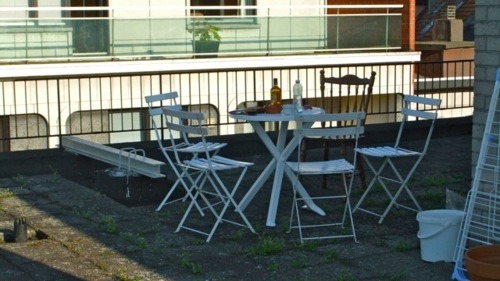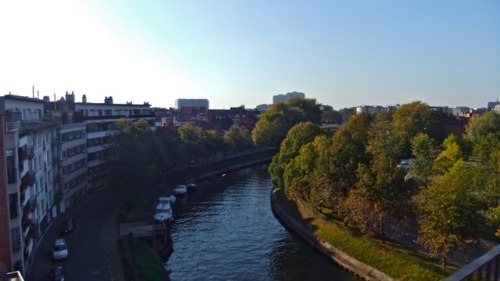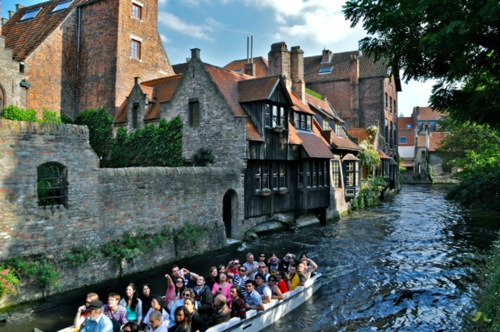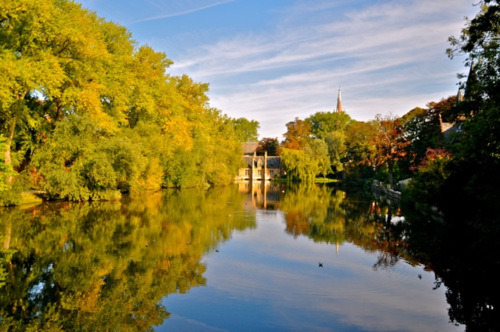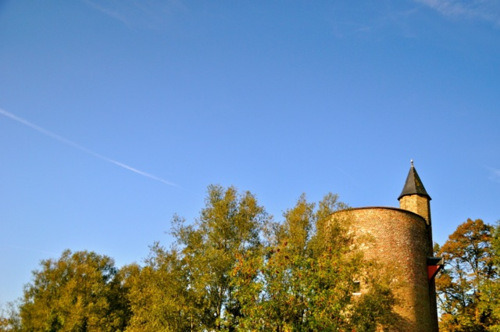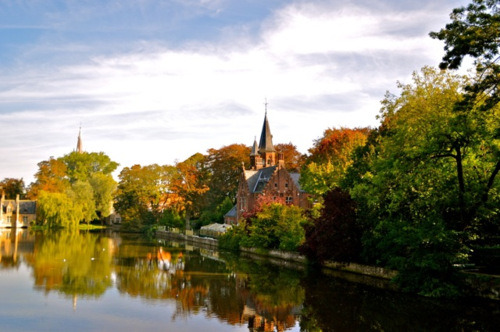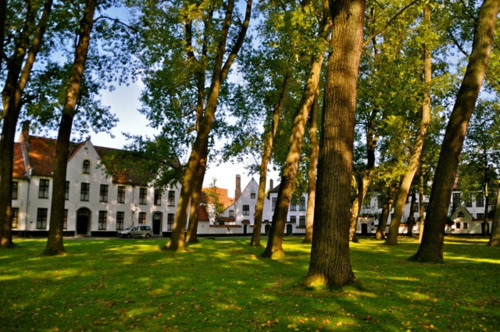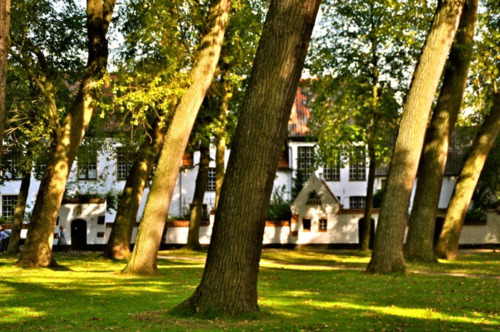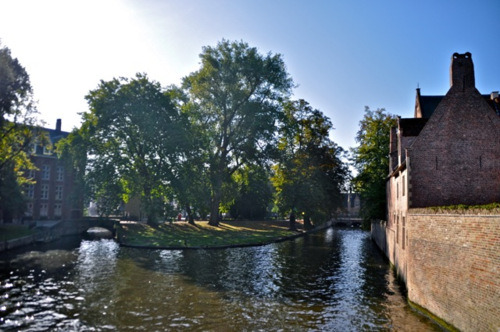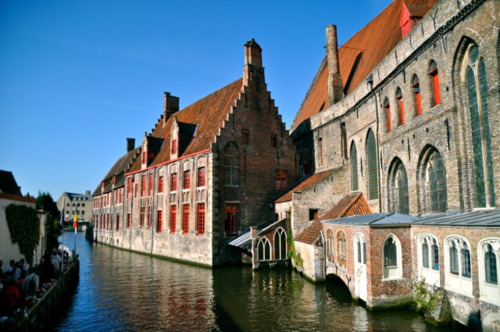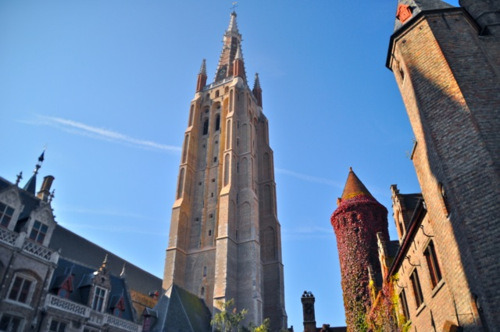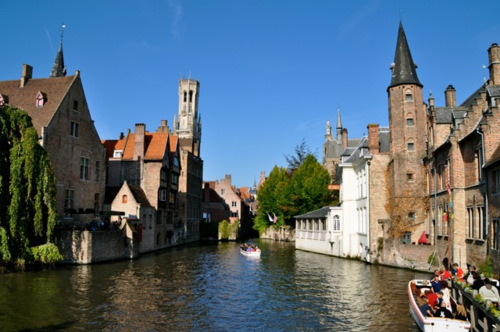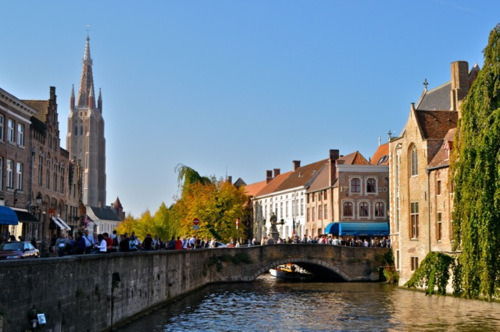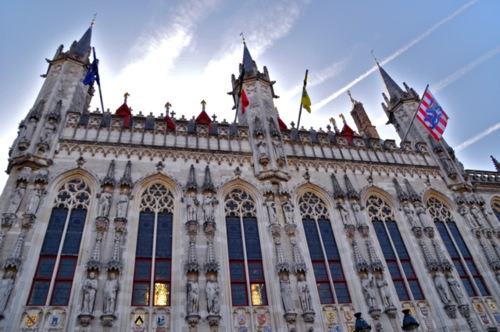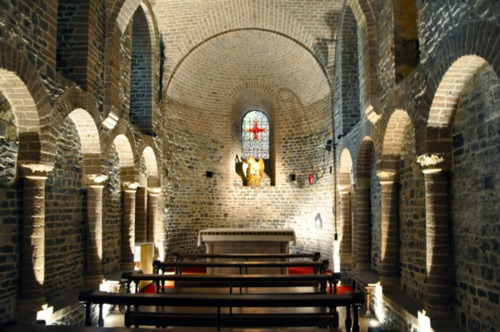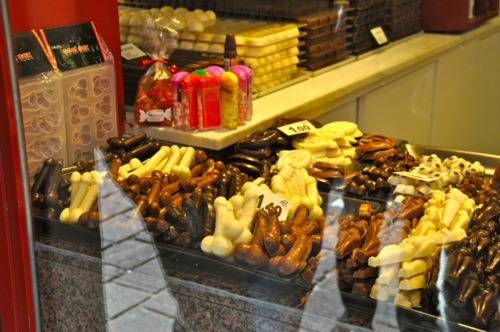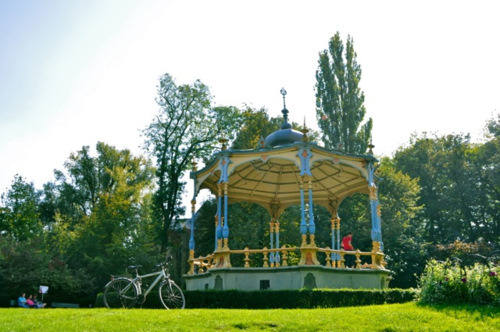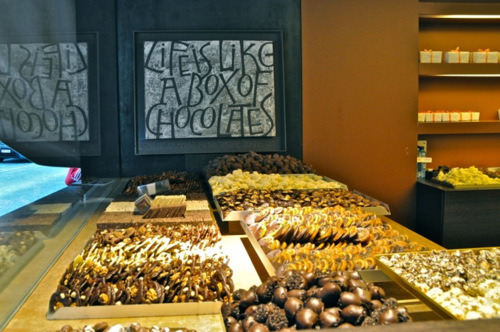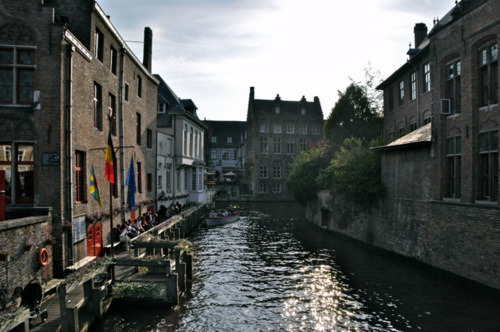In hindsight, choosing Leuven over other alternatives was a fabulous idea. The city was big enough, and vibrant enough to have amazing bars, and nice restaurants and bookstores, but small enough to be spared the isolation, the motor traffic and all the inconveniences that ironically come with modern urban living.
Locally, Leuven is known for three things: 1) university, which takes up a significant portion of the town and its fluctuating, young, and student-oriented population; 2) the brewery - incidentally now the largest brewery in the world after various mergers; and 3) the largest hospital in the region.
So … if you follow 1, 2 and 3 above in that order, you get a fairly typical Thursday night itinerary around here. ;)
As far as major landmarks are concerned, tourists generally come to Leuven to see three things - the giant overkill of a town hall, the university library, and Oude Markt - the self-proclaimed “Longest Bar in Europe”.
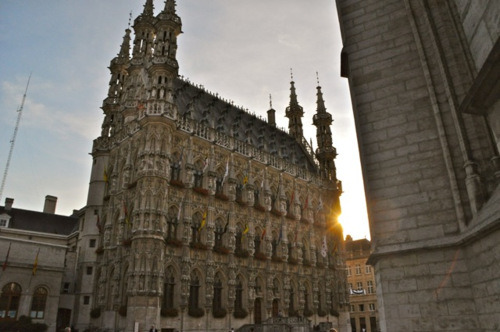
So … this is the town hall. I mean … friggin look at it. If there was a bigger overkill for a smaller municipality, I have yet to see it. Every inch of the building surface is covered with some sort of statue. I was told the statues were actually a relatively recent addition to the building. “Recent” by European standards that is, so there’s a good chance they’re still probably older than my country.
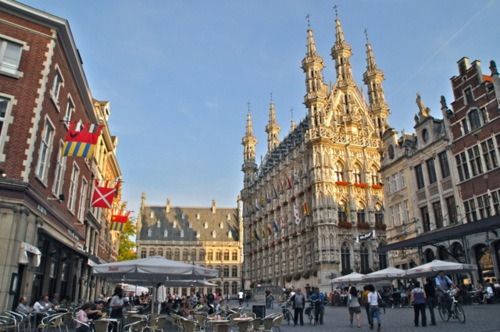
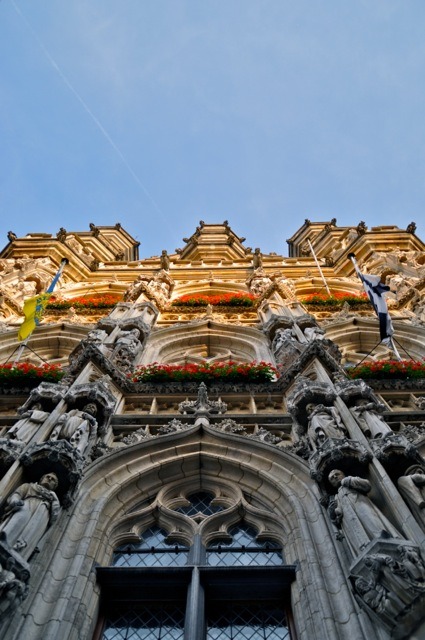
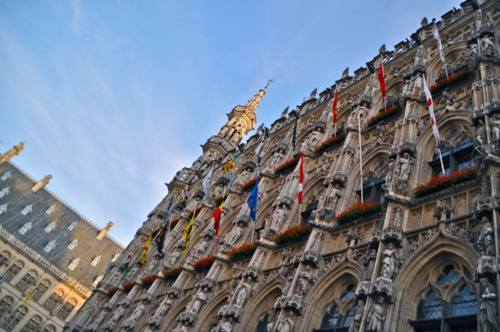
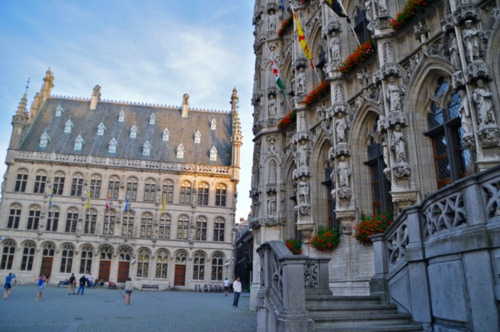
Hooverplein (Hoover Square), right next to the University Library, where all the major events in town and the weekly markets are held.
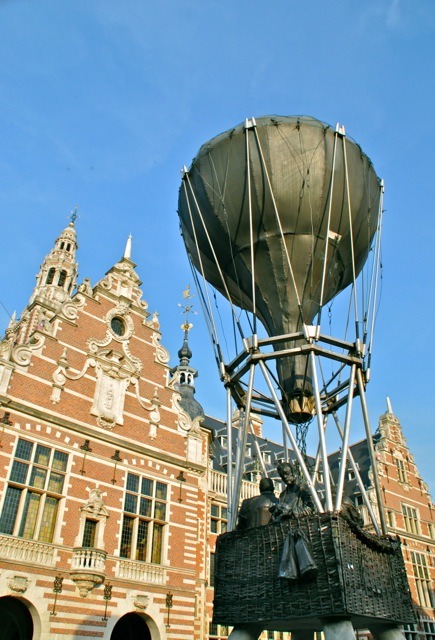
Leuven is shaped like a ring, with a few squares in the centre, from which the rest of the town branches off in a circular, spiderweb-like fashion. The outer ring of the town is where the city walls used to be. They were pulled down many a centuries ago because - in the words of one of my professors - “we cannot defend ourselves anyway, so what’s the point?”
Living here has made me think a little about urban design and about the circles and squares of whichever part of the world we live in: the places where we gather, the pavements on which we eat and drink, places to sunbathe, places to socialise, places to read alone in public. It seems to me that somewhere in the process of building modern cities in the new world, we might’ve gotten some things wrong that the Belgians got right.
(Still, I wish there was better coffee here … and front lawns.)
The Beetle, in front of the University Library.
Personally I find this a little gross. Even more perplexing is the fact that the beetle was given by the City of Leuven to the University as a gift and intended to symbolise “knowledge”.
Eh? Which part of “giant, metallic, dead insect” speaks “infinite wisdom” to you?
But then again, I am living in a country where the national symbol is a boy caught in the act of public urination, so to say the Belgians have quirky taste is perhaps a mild understatement.
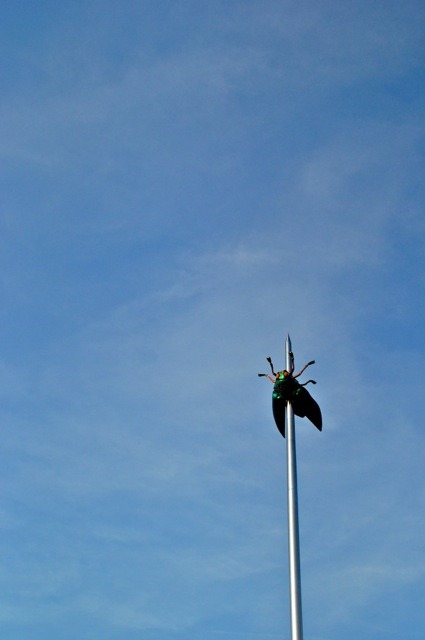
University Library and Square.
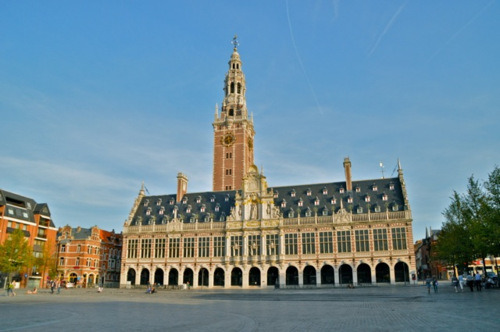
Oude Markt, a.k.a the longest bar in Europe.
These photos were actually taken on a quiet Sunday afternoon. Come here Thursday nights/Friday mornings and you’ll get a pretty good idea of why they call this a student town. Fabulous vibe, cheap booze, populated by tourists and families during the day, students at night. I heart it so.
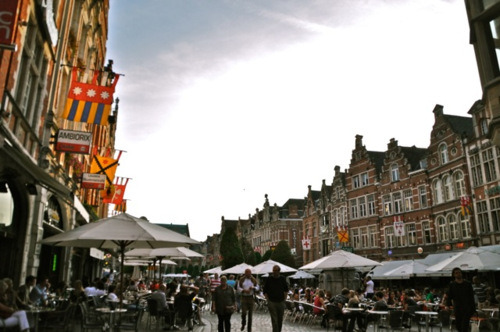
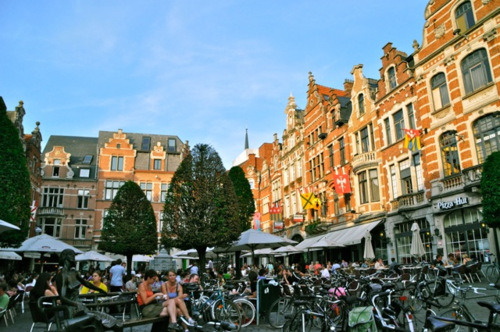
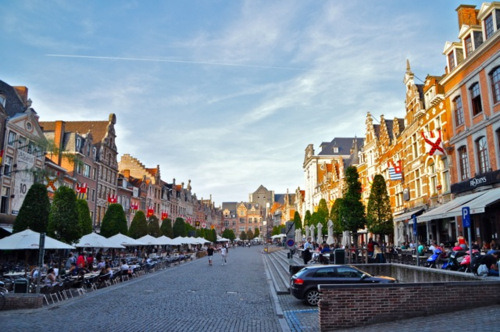
University buildings near where I live. I was coming home one evening and stopped to take a photo because the light was so lovely.
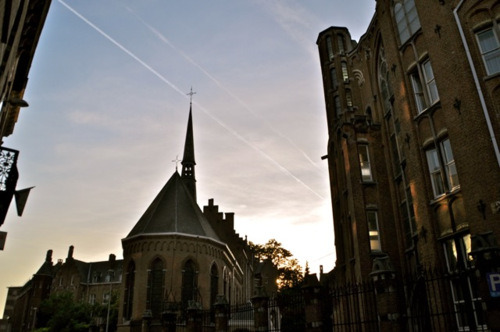
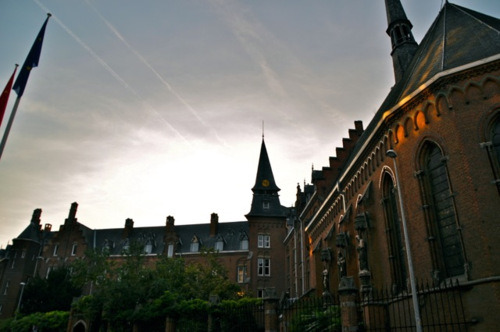
Mum: “Oh, that’s a nice alleyway.”
Me: “Mum, that’s a major street here.”
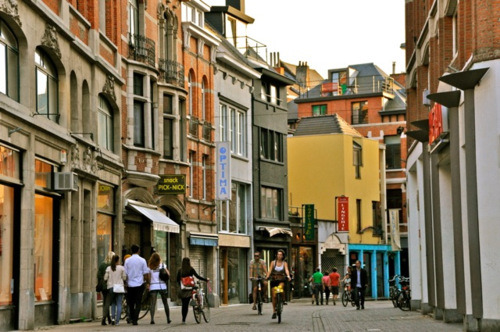
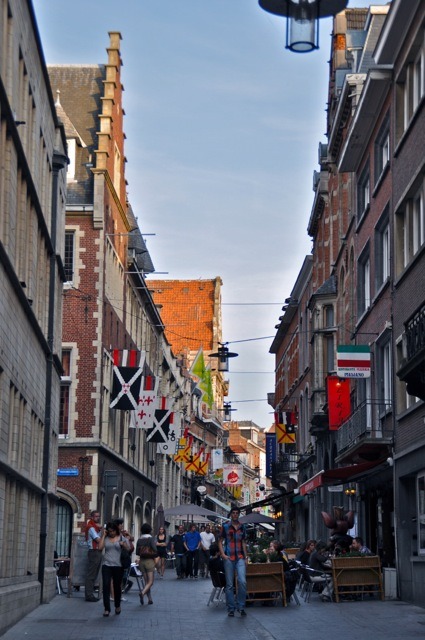
My too-girly-for-Barbie bike.
Being a town with more bikes than humans, bike theft is somewhat a sport among students here. I think mine’s safe from drunken, thieving men at least. No self-respecting specimen of Belgian masculinity would ever be caught dead riding this.
